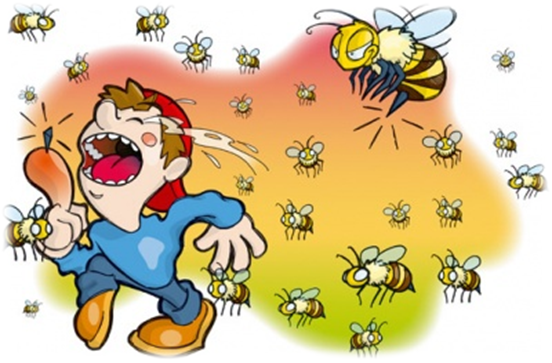
| Языки :: Испанский |
| Аудио |

 |
|
 |
|
159 |
Español |
Spanish |
|
Lección Cincuenta y cinco (55) |
||
| Miscelánea | A miscellany. | |
| 1 |
En los tiempos de Fernando VII (séptimo) los oficiales del ejército (1) cobraban sus pagas con mucho atraso. |
In the time[s] of Fern. VII the officers of the army received their pay with much delay. |
| 2 |
Un día de invierno, el general Castaños, vencedor de Bailen, se presentó en Palacio (2) vestido con pantalón blanco. |
One winter day, general C, the conqueror of B., presented himself dressed in [with] white trousers. |
| 3 |
El rey, al verlo, le dijo : — ¿Te has vuelto loco? (3) |
The king, on seeing this, said to him : — Have you [thou] turned crazy? |
| 4 | ¿Es qué no te has enterado de que estamos (4) en invierno? | Are you not aware that we are in winter? |
| 5 | Señor (5), contestó el general, será invierno según para quién. | Sire, answered the general, it is perhaps winter, it depends for whom [it will be W. according for whom]. |
| 6 |
Para mí estamos en verano, y la prueba es que anteayer cobré mi paga de Julio (6). |
For me, we are in summer and the proof is that the day before yesterday I received my pay for [of] July. |
| 7 |
A Pepito le han colocado en una oficina, y dice que está allí como el pez en el agua (7). |
They have found a job for Joe; [got Joe into] an office, and he says that he finds himself there as a fish in water. |
| 8 |
¿Sí? ¿qué es lo que hace? — Pues como los peces, ¡nada (8)! |
Yes? And what does he do? — Well, as fishes do, nothing (or : he swims. See n. 8)!!! |
| EJERCICIOS | EXERCISE : | |
| 1 | Cantar | |
| 2 |
Picó una abeja tu mano, y desde aquella mañana todas las flores que pica le van pareciendo amargas. |
A bee slung your hand — and since that morning — all the flowers that it stings — seem [go seeming] to her bitter. |
| NOTES. | |
| 1 |
Oficial means official, or clerk, etc., as well as
officer; so one has to specify : del ejército (ayHairrtheeto), of the army. — El ejercicio, the exercise. — The pay (for soldiers): la paga, whereas the monthly salary of a clerk or civil servant is : el sueldo, and a workman's salary is : el jornal. |
| 2 |
The Royal Palace: el Palacio Real (now Palacio Nacional);
the set expression is : ir a Palacio, to go to the Palace; estar en Palacio, to be at the Palace. |
| 3 |
Vuelto, irreg. past part, of volver. — Volverse loco, to turn mad. — Decir, to say; yo digo, usted dice, I, you say; yo dije, usted dijo, I, you said; yo decía, usted decía, I was saying (or would say), you were saying (or w. s.); yo diré, usted dirá, I shall, you will say; yo he dicho, I have said. |
| 4 | Estar, and not ser, whenever you can replace to be by to find oneself. |
| 5 | There is no special word for Sire; señor, lord or sir. |
| 6 |
Cobré; if you don't feel sure, conjugate cobrar, to
receive (money), on the type of tomar, less. 35. — Julio (pron. Hoolio). |
| 7 |
Pepito, dimin. of Pepe, itself an endearing name for
José, Joseph, and not Pedro. — Pescar, to fish; el pescado, fish (food); el pez, the fish (in the water), |
| 8 | A pun on words : nada, nothing, or nada (he) swims (from nadar, to swim). |
|
Aquel (ackail), aquella (ackailla), that like
ese, esa, but marking more remoteness. There is also the neuter aquello, like eso, that (pronoun). |
